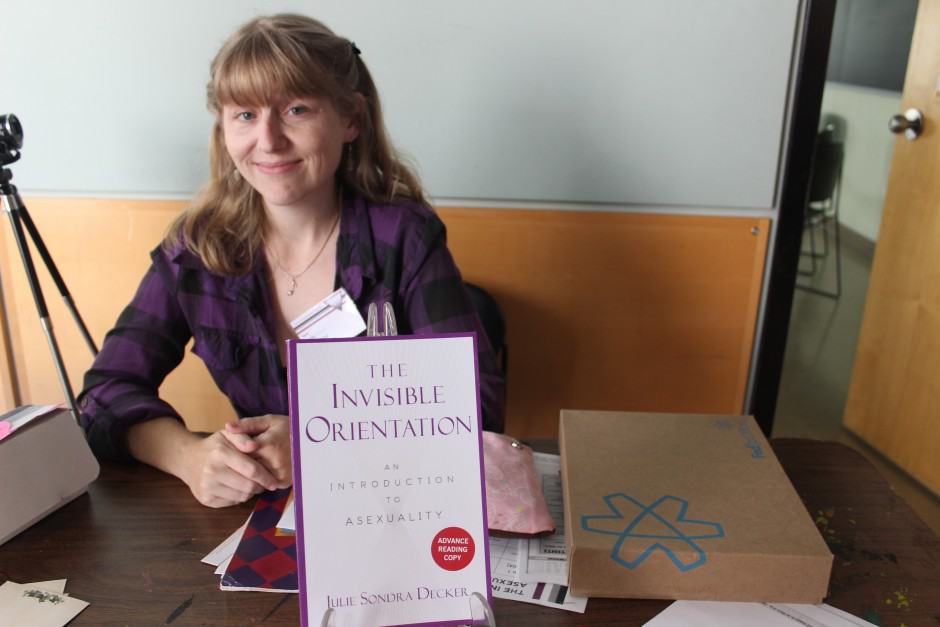On Saturday, June 28, the second-ever International Asexuality Conference took place at Ryerson University’s Rogers Communications Centre. As a part of World Pride, the conference covered various subtopics of asexuality including a history of asexuality and the asexual (ace) community, current research in asexuality, grey-asexuality, and demisexuality. In an effort to make the conference as accessible as possible, it included sign language interpreters as well.
Iris Robin, a third-year Trinity College student, served as a panelist for the session on combining asexuality and ethnicity. Being both Chinese and asexual, she shared her experiences and her struggle disentangling the two aspects of her identity that she resisted to accept. Robin also helped organize the conference, being an active member of the asexual community.
According to Mary Kame Ginoza, one of the main asexual activists in the San Francisco Bay Area and a blogger, the primary issue that asexual people have to combat is simple ignorance — people don’t know what asexuality is, let alone how to react when someone comes out as asexual. She says, “If you come out as asexual, it automatically is going to turn into a 30-minute question and answer section.”
Bauer, organizer of asexual meet-ups in New York City, agrees in saying that ignorance is the key issue. She says, “I want to come out [as asexual] to people and have them know what I’m talking about.”
The complete lack of support and resources available to both asexual people and their friends and family is a major concern to many in the community. “Things like having support groups and therapists who are experienced in dealing with asexual people and know how to kind of treat asexual people without causing problems is one of the big thing right now,” says Ginoza.
Engaging the mental health community is important to better accommodate asexuals with mental illnesses. Several attendees at the conference raised concerns about doctors, psychiatrists, and gynecologists who are unaware of asexuality and end up prescribing hormones to asexuals to treat what they consider a disease.
Ginoza says, “It’s really hard to find [mental health] professionals who would be able to help you with your anxiety or depression or whatever without their lack of knowledge about asexuality kind of getting in the way of the treatment.”
Being taken seriously is an issue that asexuals have to combat, as some people do not believe in asexuality. On coming out to people, some of the responses asexuals receive are: “It’s a phase; you’ll grow out of it,” or, “You haven’t met the right person,” or even remarks as insensitive as “Asexuality is an excuse for ugly people.” These were some of the comments on a bingo card created by Julie Sondra Decker, author of the book The Invisible Orientation, which is to be released in the fall of this year. Decker debunks many of these myths and more in her upcoming book.
Sara Beth Brooks, founder of Asexuality Awareness Week, mentioned four things she thinks are key in advancement of society for asexuals: family protection, employment protection, healthcare accessibility, and better media representation.
David Jay, the founder of Asexual Visibility and Education Network (AVEN), shared some of the misconceptions about asexuals he has come across in his experiences at the conference. In word association studies, the words commonly associated with asexual include mechanistic, inhuman, and robotic. Jay says, “There is a sense that asexual people are missing something fundamental.”
Jay added, “People think that sex and human emotional connection are Velcroed together. When someone says ‘I am not interested in having sex with you,’ what people hear is, ‘I am not interested in connecting with you.’ We need to un-Velcro these concepts because connection and intimacy can exist without sexuality.”
AVEN defines an asexual as “someone who does not experience sexual attraction.” It is an online forum and hub for asexuals worldwide. Jay established it in 2001 with two goals: to create public acceptance and discussion of asexuality and to facilitate the growth of an asexual community.
Iris Robin is a contributor to The Varsity.


